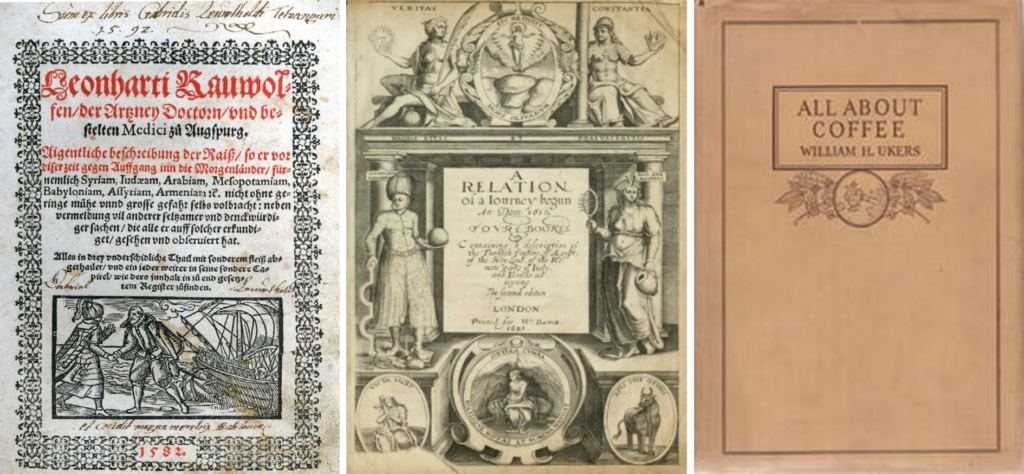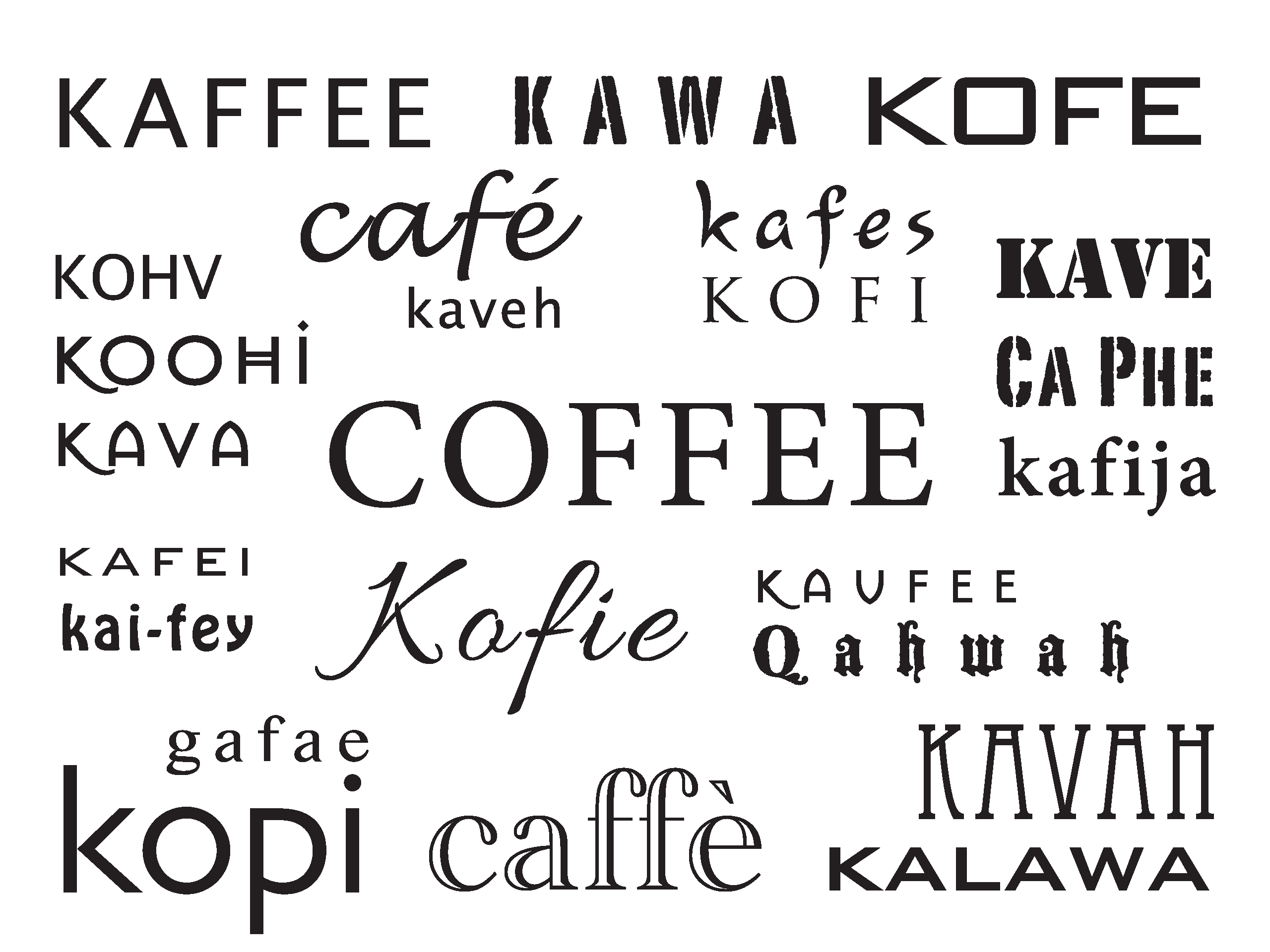The English word for ‘coffee’ made its appearance some time in the 1600s – shortly after the Italian word ‘caffe. Both are derivatives of the Turkish word ‘kaveh’, which is a derivative of the earlier Arabic word ‘qahwah’. You’ll find these Anglicised versions of Arabic and Turkish words have a few different spellings, so it can be a bit confusing.
Throughout the 1500s and 1600s, mention of a ‘mysterious dark and bitter brew’ made its way to England and Europe from ‘The Orient’, the name then given to any place located east of Europe and ‘The Levant’, a more specific name for places on the eastern shores of the Mediterranean Sea.
English and European travellers were returning home with tales about their experiences, in what would represent early travel diaries. Depending on where they went, the words they used to describe the ‘mysterious dark and bitter brew’ varied; ‘coffa’ and ‘chaube’ being among them.
In 1582, German botanist Leonhard Rauwolf, in his ‘Travels in the Orient’ explains his discovery of Turks consuming ‘chaube’, a drink he wrote was ‘as black as ink’.
In 1610, English poet George Sandys makes mention of a drink called ‘coffa’ in ‘The Relation of a Journey begun An: Dom: 1610’ , a series of four books describing his journeys to The Levant.

The Arabic term ‘qahwah al-bun’ is significant. Translating as ‘wine of the bean’, it tells us there were two Arabic words for coffee, one for the beans and one for the beverage. Unlike in English where ‘coffee’ refers to both the beans and the beverage, in Arabic the beans were known as ‘bun’ and the beverage ‘qahwah’.
Dating from the 1600s, the African word ‘kaffa’is believed by some to be the very earliest word for coffee. It’s taken after the name of the area in SW Abyssinia (now Ethiopia) where coffee trees grew wild. However, for those times there are no written records to confirm this.
According to William Ukers, who wrote his book ‘All About Coffee’ in 1911, the earliest words were Arabic – ‘bun’ for coffee beans and ‘bunchum’, for the drink made from them.
Words for coffee in different languages
Mostly derivatives from early Arabic and Turkish, the following are words for coffee in various languages today. You’ll notice considerable similarities, especially in the pronunciation.
Note that, when the alphabet is different from the Latin one used in England and Europe, the words have been Anglicised.
| Café | French, Spanish, Portuguese. Mexican |
| Cafea | Romanian |
| Caffè | Italian |
| Cafézinho | Portuguese (Brazil) |
| Ca Phe | Vietnamese |
| Coffee | English |
| Gafae | Thai |
| Gehve | Iranian |
| Kafe | Bulgarian |
| Kafei | Chinese (Mandarin) |
| Kafes | Greek |
| Kaffae | Laotian, Thai |
| Kaffe | German, Norwegian, Danish |
| Kahawa | Swahili |
| Kahve | Turkish |
| Kahvi | Finnish |
| Kai-fey | Chinese (Hong Kong) |
| Kalawa | Kenyan |
| Kape | Philippine |
| Kaufee | Inuit |
| Kava | Czech, Croatian, Slovenian, Lithuanian |
| Kavah | Hebrew, Jordanian |
| Kave | Israeli, Hungarian |
| Kawa | Polish |
| Kofi | Indian |
| Kofe | Russian |
| Koffie | Dutch |
| Kafija | Latvian |
| Kohv | Estonian |
| Koohii | Japanese |
| Kope | Hawaiian |
| Kopi | Indonesian, Malaysian |
| Qahwa (Kahwa) | Cambodian, Egyptian, Iraqi, Lebanese |


